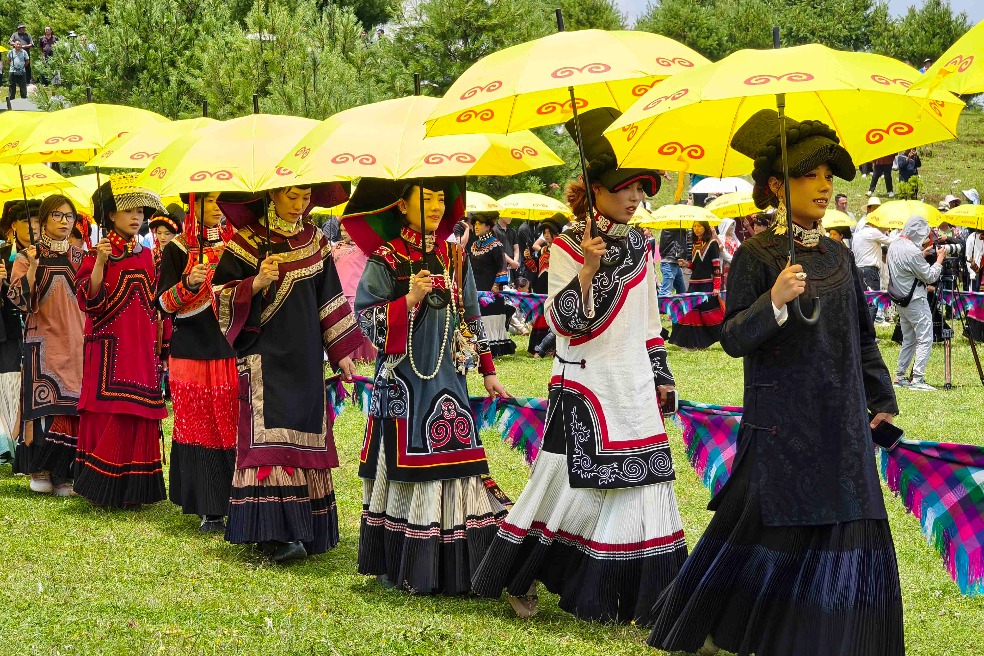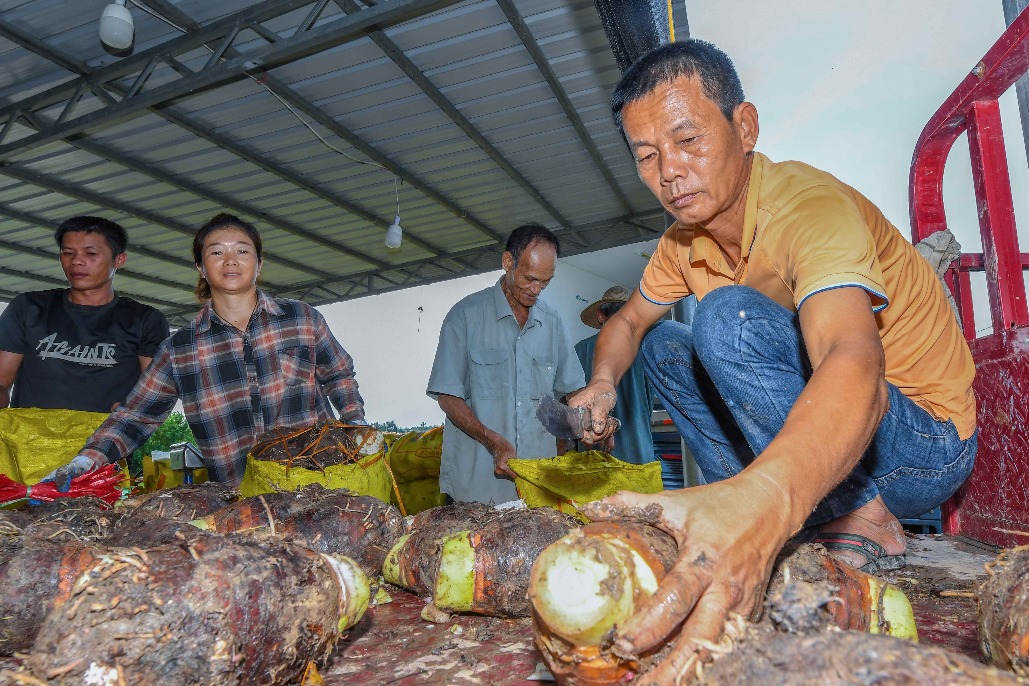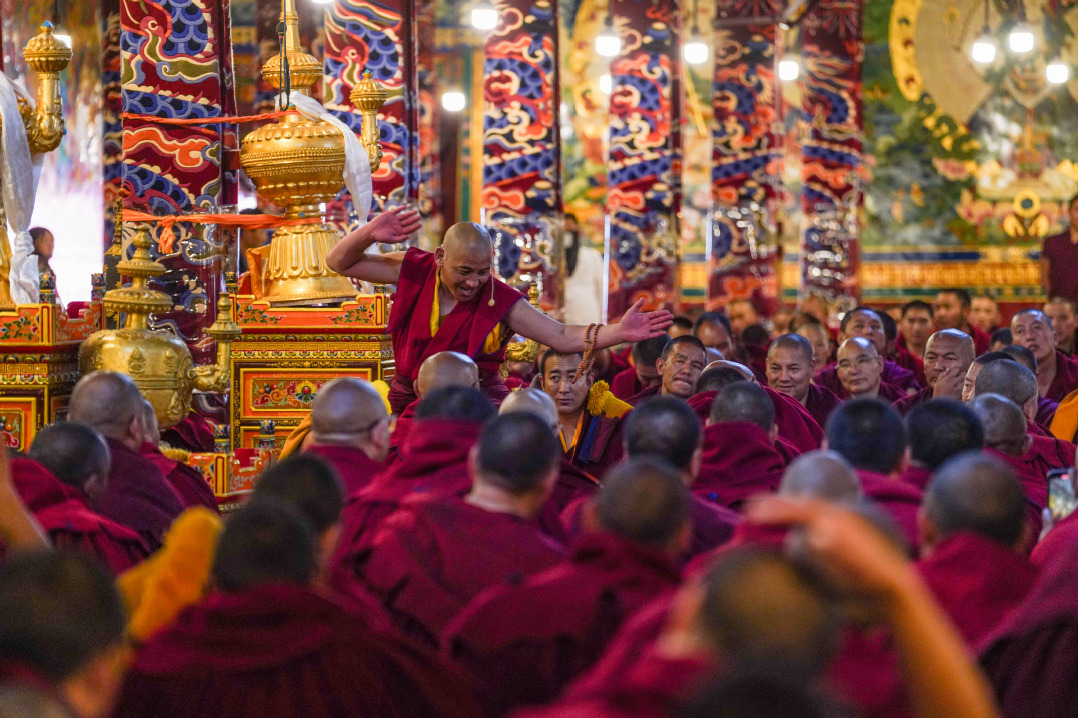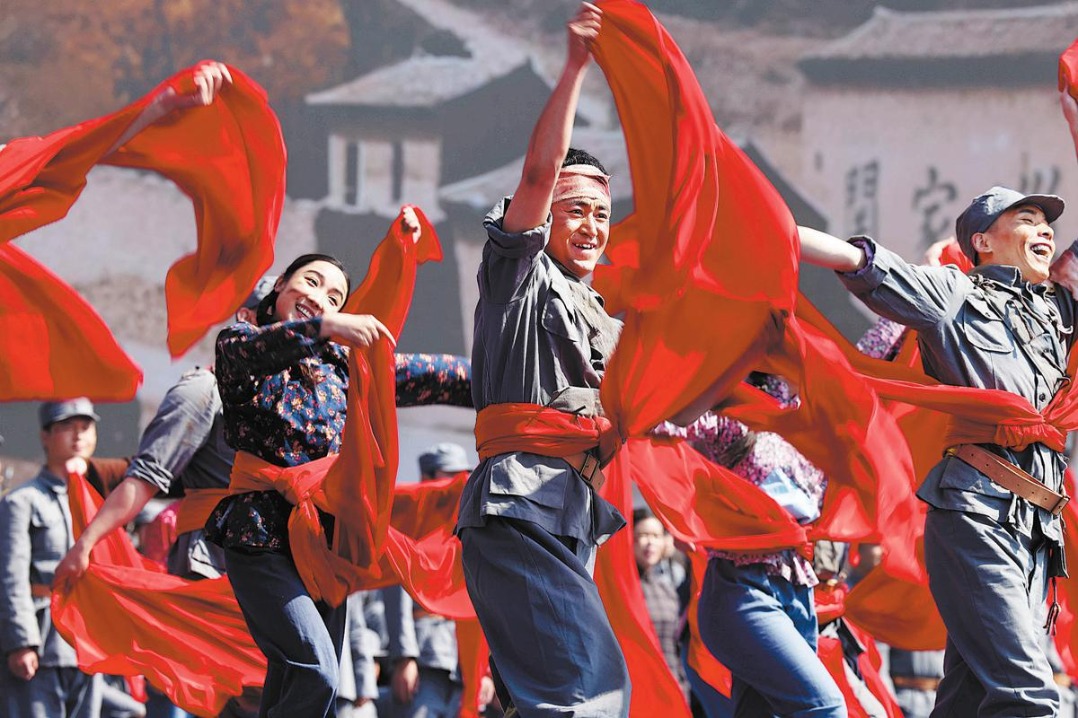Experts propose ideas for reversing declining births


Offering equal subsidies for first-child and multiple-child families and expanding free public education and access to fertility treatment have become hotly discussed topics during this year's two sessions, as political advisers and legislators gather to discuss innovative approaches to lifting the birthrate in the country.
Last year, China's total population dropped for the first time in over six decades. Officials said the primary reasons include a falling number of newborns and low willingness to have babies, and called for stronger and more creative measures to encourage births.
He Dan, director of the China Population and Development Research Center and a member of the 14th National Committee of the Chinese People's Political Consultative Conference, said during a recent interview that some regions have solely focused on providing allowances for couples with two or three children while overlooking the needs of families with only one child.
"The experience of raising the first child is very important for young adults and will affect their decision on whether to have more children," she said.
She said that delays in having the first child and the shrinking number of people choosing to have children are the primary reasons for declining births in recent years.
China's total fertility rate fell from 1.52 in 2019 to 1.07 in 2022. The fertility rate for the first child dropped from 0.7 to 0.5 during the period and the average age for having a first child rose from 26.4 to 27.4 years old, according to He.
She added that one survey showed that many mothers with a single child complain about anxiety around conception, pregnancy and child-rearing. They said they were already under a lot of pressure to provide quality education and had little time to spare to raise another child.
"Some local supportive policies only cover families with two or three children and exclude those with one child," she said. "Such policies hardly increase willingness for childbearing and could result in fragmented enforcement and unfairness."
The government in Hangzhou, capital of Zhejiang province, last month said that parents who have a third child will receive a lump-sum payment of 20,000 yuan ($2,900) and those who have a second child will get 5,000 yuan. No subsidy was announced for families having a first child.
She suggested scrapping differences in the eligible amount of subsidies linked to the number of children, and improving the experiences of families having their first child so as to increase their sense of gain and nurture their longing for more babies.
To further reduce financial burdens, Zhao Dongling, a well-known playwright and a deputy to the National People's Congress, said she proposes waiving tuition fees for children born after 2024 through to college education.
Gan Huatian, a professor in elderly digestive diseases at Sichuan University's West China Hospital in Chengdu, Sichuan province, said that he proposes offering education subsidies and free education from kindergarten to senior high school for the third child in a family.
"Education and medical problems are two of the most prominent factors contributing to low willingness to have babies, and providing free education for the third child could be a good solution," he said during an interview with Chengdu.cn, a media outlet.
A number of political advisers and legislators focused their proposals this year on assisted reproductive technologies, such as egg-freezing services that are currently banned for use among unmarried women.
Xu Congjian, a national political adviser and president of the Obstetrics and Gynecology Hospital of Fudan University, said that the rule discriminates against unmarried women.
He suggested evaluating the conditions of older unmarried women. If their fertility is found to start declining and they have a strong desire to have a baby in later years, they can be allowed to preserve their fertility while receiving continuous guidance from medical professionals.
Qiao Jie, a national political adviser and president of Peking University Third Hospital, said during an interview with Beijing News that China has established a rigorous system of regulating assisted fertility therapies.
She said that current egg-freezing technologies cannot guarantee 100 percent success in preserving the quality of eggs and could potentially result in biosafety risks.
"It would be a regret for women who have their eggs frozen and then miss the golden window for getting pregnant naturally," she said, adding that expanding access to egg-freezing technologies can be piloted in some regions first and should be promoted in a responsible manner.
- Nation's health outcomes gain recognition
- Sichuan's ethnic festival attracts thousands of tourists
- SCO Digital Economy University Alliance launched
- Experience from a first-person perspective a sniper shooting from a boat
- Humble root crop becomes vital industry in Haikou village
- Sniper showdown on water: Realistic battlefield simulation





































